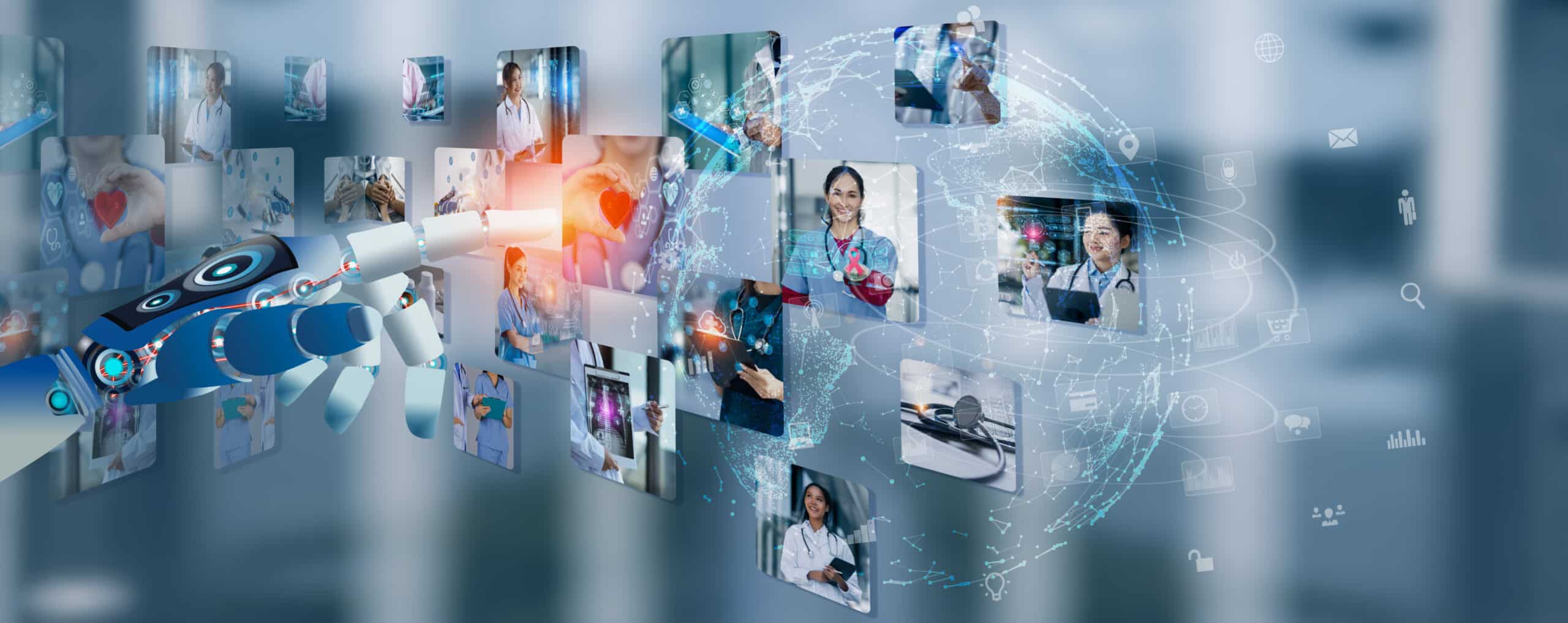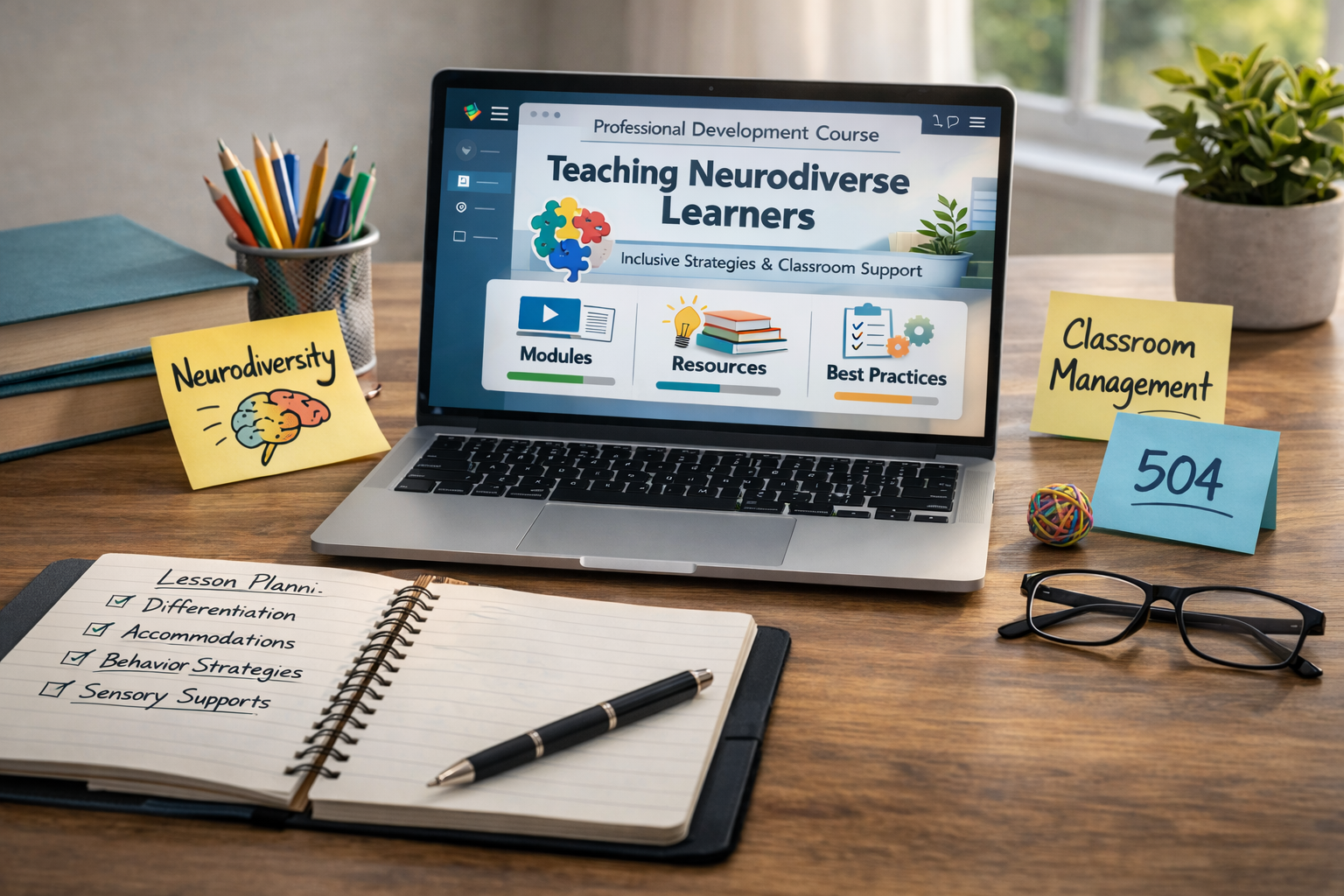The Impact of AI in Healthcare: Knowing the Pros and Cons

Artificial intelligence is delivering notable improvements in care, cost savings, and efficiency, and healthcare institutions are implementing these systems from the front desk to the operating table. Health professionals in every role are experiencing the impact of AI in healthcare firsthand, and understanding how to use these tools is fast becoming a required skill.
While the wide range of benefits AI offers is catching the eyes of healthcare leaders, it comes with a strong appreciation that these solutions aren’t simply plug-and-play. They can offer powerful predictive and diagnostic insights, but today, they aren’t a replacement for highly skilled radiologists, physicians, and nurses.
As a result, healthcare professionals need to understand the benefits and risks of supplementing their work with AI systems. Courses like Artificial Intelligence in Medicine: Innovations Shaping Healthcare Today ensure they are aware of the ethical and professional limitations of AI tools as well as the range of applications they might encounter. Here are some of the pros and cons to expect when using artificial intelligence at your institution.
Pros of AI in Healthcare
The healthcare industry produces 50 petabytes of data every year—more than any other sector. However, under normal circumstances, physicians, administrators, and leaders are only capable of processing a tiny fraction of the available information when they make critical decisions that affect the lives of patients in their care.
Whether it’s time, money, or simple human limitations, valuable insights about every aspect of the industry go unnoticed every day, resulting in serious financial and personal consequences. Fortunately, AI is changing all of that through its ability to consume huge data sets quickly and improve resource management across a wide range of operations.
Diagnosis and Screening
Artificial intelligence is rapidly expanding the diagnostic capabilities healthcare institutions can provide. High-efficiency programs can rapidly identify anomalies noted on medical imaging that wouldn’t otherwise be seen with the naked eye. These tools can also use machine learning to comb through huge libraries of images and spot trends that inform future analysis.
In addition to the impressive accuracy of AI resources, they are also capable of evaluating large volumes of patient information to screen for hidden trends and risk factors. These systems can evaluate a patient’s complete profile against huge databases to predict or uncover risks related to race, gender, genetics, socioeconomics, and extended medical history
Patient Satisfaction
Many patient-facing platforms are now supported by AI systems that reduce manual work and free up staff. Platforms that support self-led scheduling and administrative tasks often use chatbots and AI-driven interfaces, making it easier for patients to navigate complex and unfamiliar healthcare environments.
Today, appointments can be made and confirmed with smartphones, giving patients unprecedented control over their healthcare experience. Also, nearly 400,000 people experience harm related to medical errors every year, and conservative estimates put the price tag at over $20 billion for the industry as a whole. AI systems can reduce or eliminate many mistakes related to manual work as well as cross-check prescriptions and treatment recommendations.
Medical Training
Artificial intelligence is also being integrated into the training of medical professionals. Across numerous disciplines, AI-driven systems supporting simulations and virtual reality offer students in the healthcare field incredible learning opportunities that are impressively realistic. These life-like experiences allow students to push the limits of their knowledge and skill sets in the safety of learning labs that eliminate the risk of patient harm.
Cons of AI in Healthcare
While the positive impact of AI in healthcare is substantial, it also introduces a number of risks that professionals on all levels must account for. These systems often rely on sensitive patient data and financial information, and how it’s used, evaluated, and protected poses several ethical and institutional concerns.
Data Security
Patients take it for granted that their healthcare provider will protect their information, and it’s a bedrock of the doctor/patient relationship. Healthcare institutions must ensure that the data their AI systems consume is stored securely and used in a way that protects patient privacy. Every access point represents a potential vulnerability, and administrators need to evaluate their security capabilities and develop reliable user protocols before implementing AI systems.
High Implementation Costs
The cost of artificial intelligence is often high and extends far beyond the software itself. In many cases, infrastructure and hardware need to be upgraded so that the new technology can run efficiently and integrate with legacy systems.
For example, adapting the electronic medical record to receive and interpret data from cutting-edge patient monitoring devices may require substantial investments in training, security, and hardware. As is the case with expensive medical equipment, the return on the investment may take years to mature and require additional expenses along the way.
Algorithmic Bias
Algorithmic bias in the context of artificial intelligence refers to systematic and repeatable errors a computer system creates that lead to unfair or discriminatory outcomes. These outcomes are often based on protected characteristics like race or gender.
Algorithmic bias in AI is primarily the result of incomplete or biased data, poor algorithmic design, or user interactions. If users aren’t properly trained to identify and avoid these errors, they may result in tangible harm to entire subsets of the patient population.
Harnessing the Positive Impact of AI in Healthcare
The future impact of AI in healthcare will depend on responsible collaboration and ethical use of technology within appropriate contexts. However, with proper implementation and training, AI can deliver innumerable benefits that save both money and lives.
Premiere is committed to creating an informed and empowered healthcare workforce that can make the most of these valuable tools. Courses like Artificial Intelligence in Medicine: Innovations Shaping Healthcare Today keep health professionals up-to-date on the latest technology they’ll encounter and best practices for using it ethically and effectively.
All of Premiere’s award-winning courses are created by industry experts and help healthcare workers meet their professional obligations and develop their careers.


.png)



